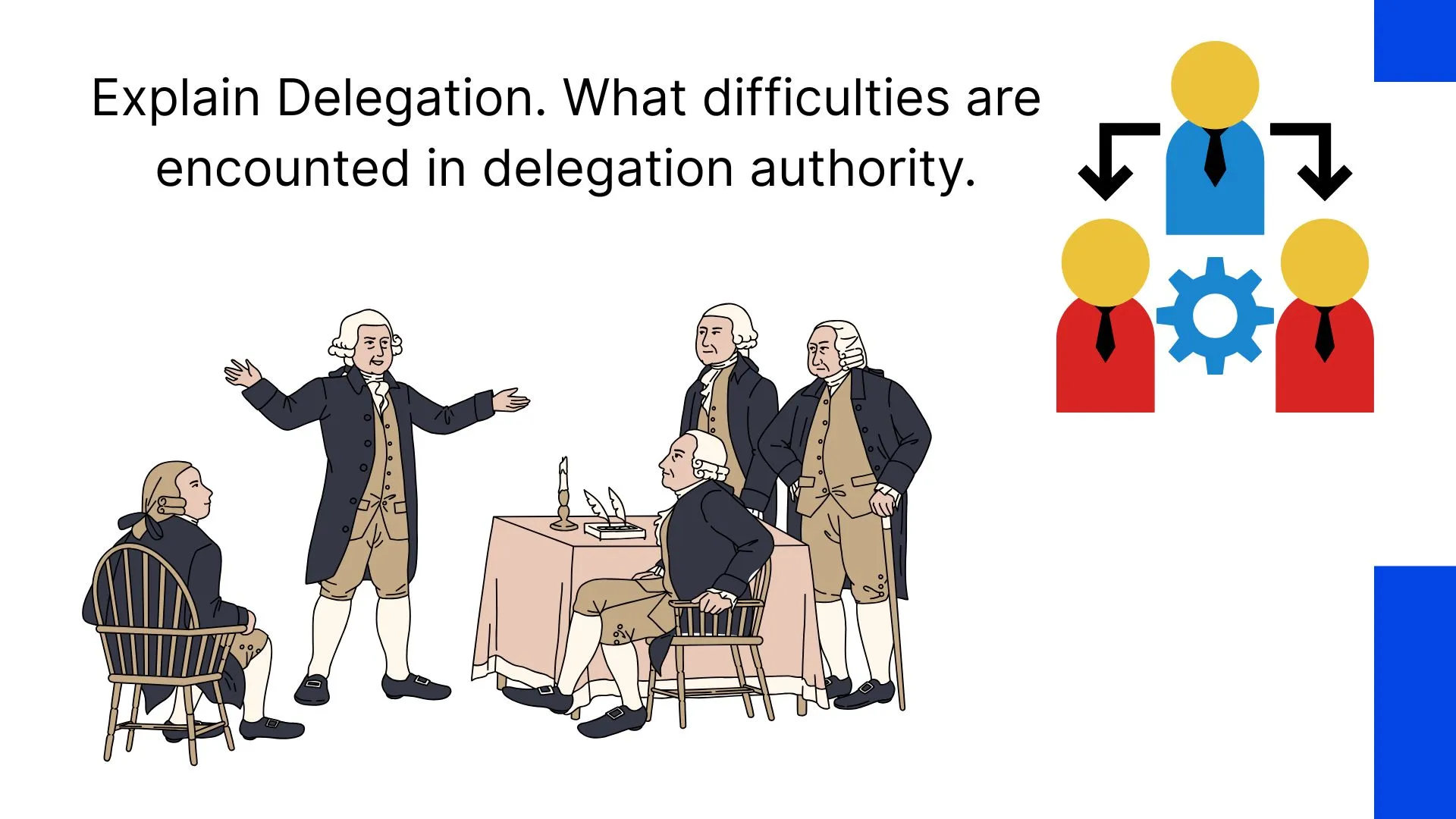Table of Contents
What is Delegation?
Delegation is a way for managers to give subordinates the responsibility and power to do certain jobs or make decisions. In this case, power and responsibility are transferred from a higher-level manager to a lower-level worker. Delegation that works well is important for the efficiency of an organisation, the growth of employees, and the usefulness of leadership.
Key Elements of Delegation:
Assignment of Responsibility:
Managers give their subordinates certain jobs or responsibilities. The subordinate’s skills, abilities, and growth goals are all met by these jobs.
Giving out authority:
Along with giving people duty, managers also give them the power to do the tasks they’ve been given. This includes the power to make decisions and the ability to get resources.
Accountability:
When you delegate, you hold people responsible for completing the tasks you give them. Managers are still responsible for the results as a whole.
Communication:
Communication that is clear and works well is very important when delegating. To make sure everyone understands, managers need to spell out goals, rules, and any other relevant information.
Support and feedback:
Giving feedback and assistance to subordinates regularly is part of the delegation. Managers give advice, answer questions, and keep an eye on progress as the job is being done.
Difficulties Encountered in Delegating Authority:
Being afraid of losing control:
Some managers are afraid to share because they don’t want to lose control of the results. Micromanagement and less employee freedom can happen as a result.
Lack of Trust:
For managers to delegate, they need to be able to trust their workers. If managers don’t trust their employees, they might not want to give important jobs to other people.
Inadequate Communication:
Misunderstandings can happen when people don’t talk about goals, rules, and resources clearly. Communication that isn’t full or clear can cause tasks to fail.
Unclear Objectives:
When you delegate without making clear goals or results, it can lead to confusion. For subordinates to do their jobs well, they need to know exactly what is expected of them.
Skill and Capability Mismatch:
If you give people jobs without taking their skills and abilities into account, they might not do as well as they could. It’s very important to match jobs to people’s strengths.
Reluctance to Empower:
When managers don’t give their subordinates the support, guidance, or tools they need, they’re not delegating effectively. Not having enough help can make you angry and make you fail at your tasks.
Overloading or Underloading:
Some bosses might not want to give their workers more responsibility because they think they can do the work better themselves. This unwillingness gets in the way of employees’ growth.
Failure to Establish Accountability:
It can be hard for managers to find the right mix in how to divide up the work. Too much work for employees can cause stress and burnout, and too little work for them could mean that their full ability isn’t being used.
Failure to Establish Accountability:
Delegated tasks may not get the follow-up they need if there aren’t clear ways to hold people accountable. If you don’t set up transparency, people might not be committed or responsible.
Lack of Recognition:
Managers may not recognise and thank subordinates for their hard work when they finish jobs they were given. Recognition is important for keeping people motivated and happy at work.
Also Read: Define motivation. Explain Maslow’s Needs Hierarchy Theory.

